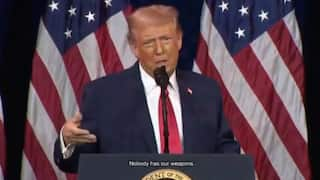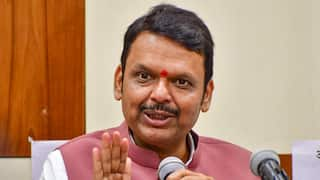Sri Lanka Crisis: PM Ranil Wickremesinghe Agrees To Resign, To Make Way For All-Party Govt Amid Nationwide Protests
Prime Minister Ranil Wickremesinghe has informed party leaders that he is prepared to step down as Prime Minister of the Republic of Sri Lanka to allow an all-party administration to take office.

Sri Lanka's Prime Minister Ranil Wickremesinghe has informed Party Leaders that he is prepared to leave as Prime Minister and allow an all-Party Government to take over, as per the PMO, news agency ANI reported.
#SriLankaProtests | Prime Minister Ranil Wickremesinghe has told the party leaders that he is willing to resign as Prime Minister of the nation and make way for an all-party government to take over: PMO
— ANI (@ANI) July 9, 2022
After months of economic decline and public unrest that culminated in anti-government protesters storming the presidential palace and office on Saturday, party leaders in Sri Lanka reportedly demanded that President Gotabaya Rajapaksa and Wickremesinghe resign at a meeting presided over by the Parliament Speaker.
Prior to a meeting to deliberate on the next measures to address the issue in Sri Lanka, the parliament's speaker presided over early discussions between Wickremesinghe and a few party leaders.
Rajapaksa reportedly told Wickremesinghe that he will respect the choice made at the party leaders' meeting, according to local media.
The whereabouts of embattled President Rajapaksa were unknown after he was evacuated out of his official house in Colombo on Friday ahead of Saturday's rallies, during which hundreds of enraged anti-government protestors surged into his official mansion.
According to the party's general secretary, Sagara Kariyawasam, a group of MPs from the ruling Sri Lanka Podujana Peramuna have written to Rajapaksa asking him to stand down and allow another leader to take over with a clear parliament majority. According to local media, at least 16 MPs signed the letter.
After hundreds of enraged anti-government protestors poured into Rajapaksa's official house, Sri Lanka's prominent attorneys' group questioned his ability to operate and continue in power.
Sri Lanka, a country of 22 million people, is in the throes of historic economic instability, the worst in seven decades, exacerbated by a severe lack of foreign cash, leaving it unable to pay for crucial imports of petroleum and other necessities.
(With Agencies Inputs)
Related Video
Uttarakhand News: Winter Chill Grips North India; Kedarnath Dham Covered in Snow



































